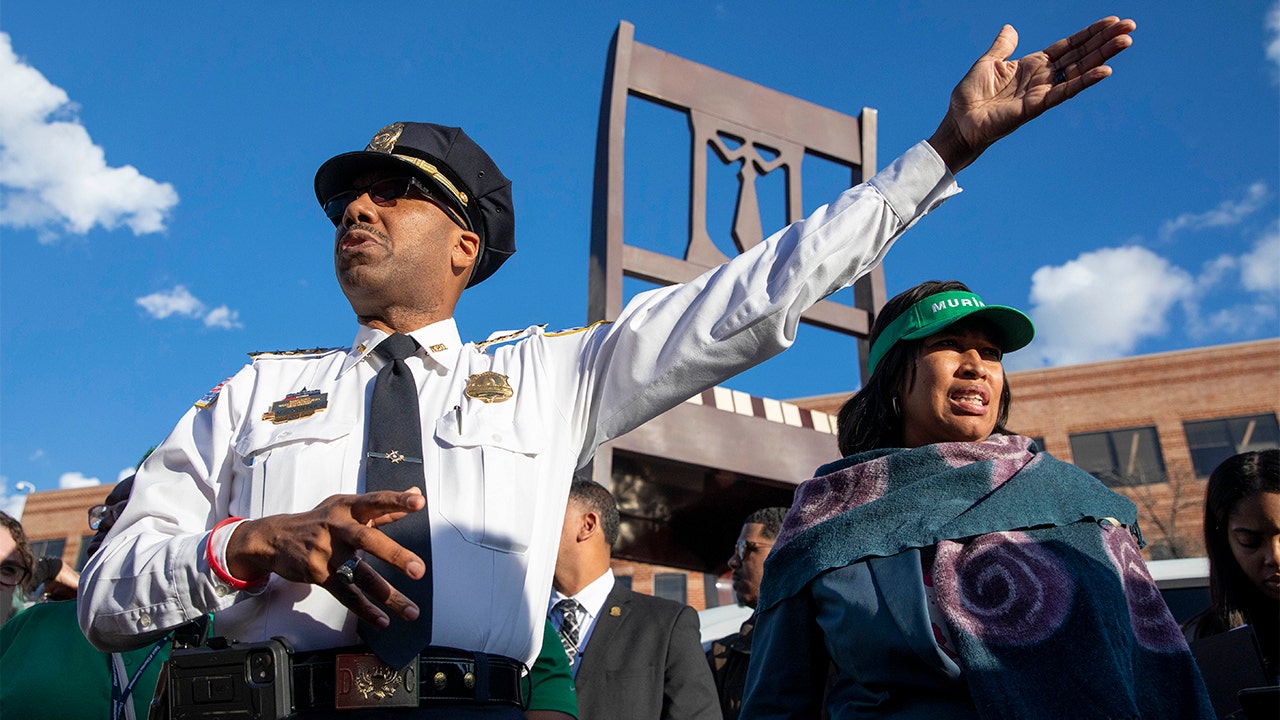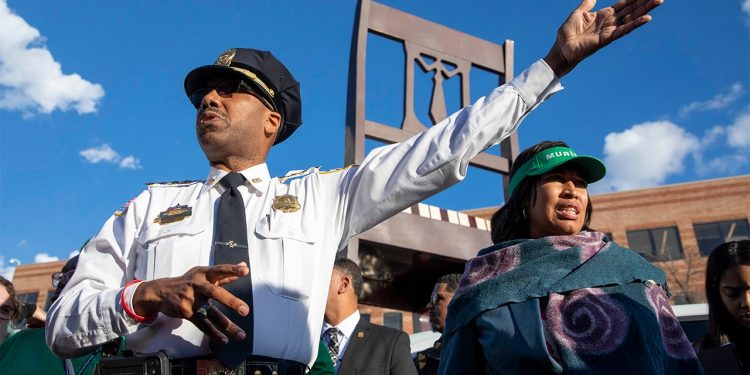
The District of Columbia City Council voted to force through revisions of the district’s criminal code that will soften penalties on violent crimes, overriding a previous veto from the mayor’s office.
Bowser vetoed the Revised Criminal Code Act earlier this month after the council, which lacks a single Republican member, voted unanimously to adopt it in November.
Ward 2 Councilmember Brooke Pinto, who voted to overturn the veto, argued Tuesday that ‘allowing the veto to stand would be a significant step back in our work to modernize the criminal code, negating years of work, compromise and engagement by the Council.’
The overhaul of the city’s criminal code includes reduced maximum sentences, the elimination of nearly all mandatory minimum sentences, and expanded rights to jury trials by those accused of misdemeanors.
Criminal justice reform advocates say the bill is necessary to modernize the law, which was written in 1901, and ensure that punishments are proportionate to the crimes being committed.
‘It is a long overdue overhaul of our criminal Code, which was first handed down to us from Congress back in 1901, a Congress that, if you can believe it, is even more dysfunctional and unrepresentative the District Columbia than what we have today,’ said Ward 6 Councilmember Charles Allen.
But opponents have sounded the alarm on provisions that would allow D.C. inmates to ask for early release 20 years into their sentence, even those accused of violent crimes like murder or sexual assault.
‘Anytime there’s a policy that reduces penalties, I think that sends the wrong message. That takes the focus off using guns or possessing guns, and I think that’s the wrong way to go,’ Bowser previously wrote about her decision to veto.
She continued, ‘I’m also very concerned the courts have the resources to keep up with the law. And we are just now seeing the courts really get going full force post-pandemic, and what this law would suggest is that the number of trials would skyrocket.’
The DC City Council’s Tuesday decision sends the bill to Congress, where federal lawmakers will have 60 days to review it.
Within that period, Congress may enact a joint resolution disapproving the Council’s Act. If President Biden approves the resolution, the act will be prevented from becoming law.
If enacted, the revisions will go into effect in 2025.
Fox News’ Jessica Chasmar contributed to this report.

The District of Columbia City Council voted to force through revisions of the district’s criminal code that will soften penalties on violent crimes, overriding a previous veto from the mayor’s office.
Bowser vetoed the Revised Criminal Code Act earlier this month after the council, which lacks a single Republican member, voted unanimously to adopt it in November.
Ward 2 Councilmember Brooke Pinto, who voted to overturn the veto, argued Tuesday that ‘allowing the veto to stand would be a significant step back in our work to modernize the criminal code, negating years of work, compromise and engagement by the Council.’
The overhaul of the city’s criminal code includes reduced maximum sentences, the elimination of nearly all mandatory minimum sentences, and expanded rights to jury trials by those accused of misdemeanors.
Criminal justice reform advocates say the bill is necessary to modernize the law, which was written in 1901, and ensure that punishments are proportionate to the crimes being committed.
‘It is a long overdue overhaul of our criminal Code, which was first handed down to us from Congress back in 1901, a Congress that, if you can believe it, is even more dysfunctional and unrepresentative the District Columbia than what we have today,’ said Ward 6 Councilmember Charles Allen.
But opponents have sounded the alarm on provisions that would allow D.C. inmates to ask for early release 20 years into their sentence, even those accused of violent crimes like murder or sexual assault.
‘Anytime there’s a policy that reduces penalties, I think that sends the wrong message. That takes the focus off using guns or possessing guns, and I think that’s the wrong way to go,’ Bowser previously wrote about her decision to veto.
She continued, ‘I’m also very concerned the courts have the resources to keep up with the law. And we are just now seeing the courts really get going full force post-pandemic, and what this law would suggest is that the number of trials would skyrocket.’
The DC City Council’s Tuesday decision sends the bill to Congress, where federal lawmakers will have 60 days to review it.
Within that period, Congress may enact a joint resolution disapproving the Council’s Act. If President Biden approves the resolution, the act will be prevented from becoming law.
If enacted, the revisions will go into effect in 2025.
Fox News’ Jessica Chasmar contributed to this report.











